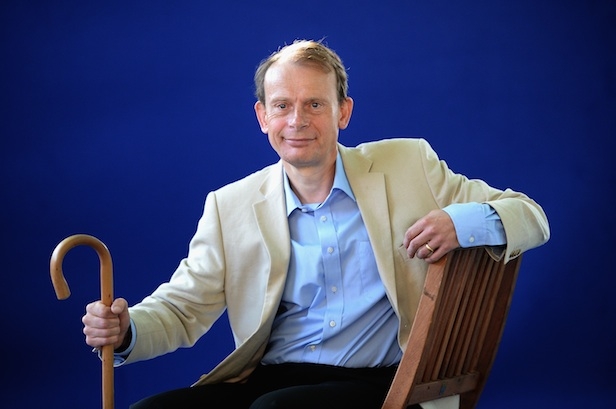It’s been a strange summer. After a stroke, holidays are not what they used to be. We went to Juan-les-Pins for a week in a hotel. It seemed perfect because it had beaches for the family, and at nearby Antibes there is a great little Picasso museum for me to haunt. It has the best drawing of a goat ever made. My daughters and wife doggedly manhandled me across hot sand into and out of the water and I enjoyed that. But being surrounded by so many fit people running, cycling and swimming was a little dispiriting. Mind you, I’ve always been useless at holidays. I hate being too hot. I hate lying around on grit (rebranded as ‘sand’). I hate airports. I hate long car journeys. My idea of a good break involves a bracingly cold northern city and some good art galleries.
So when I went to Berlin to complete a film about Angela Merkel, I was a lot happier. Berlin, though it also was too hot, is one of my favourite cities. The political classes there speak better English than they do in London, the art is fabulous and the bits the RAF missed are pretty tidy, too. I was talking to one of Merkel’s aides and was struck by how nervous he was about a German economy that seems to our eyes so strong. Oh no, he said; we have no real leading internet brands, and we have a growing anti-scientific consensus — anti-nuclear, the Greens, GM crops, all that — which is cutting off Germany’s options for the future. Above all, he told me, you in Britain have the greatest city on earth. You only like Berlin because it’s so empty and quiet.
But any sense of self-satisfaction was punctured while I was up at the Edinburgh Festival. When I was a young reporter on the Scotsman, we prided ourselves in reviewing everything, so I would be sent out day after day to see half a dozen or more shows, mostly execrable, and write up reviews. I’ve barely been back in the last 20 years, during which the fringe has grown so hugely that the old policy would be nearly impossible. Edinburgh, which really is the most beautiful city on earth, was again far too hot. But there’s something about struggling down some 16th-century spiral stairs each morning and into a crowd of several thousand young people trying to persuade you to come and see a new version of Pericles, or whatever, to blow away any cynicism or pessimism about the cultural state of the country. Every time I turned a corner, I seemed to bump into a relative or an old friend — a cousin from Skye I hadn’t seen for years, mooching past the ham in the great Edinburgh Italian deli, Valvona and Crolla; someone from Dundee High School in my favourite pub, Sandy Bell’s, where there is folk music and more facial hair than in the Orthodox church. But the meeting that really made me think was with a Chinese girl I’d worked with in Shanghai and Beijing. A loyal member of the Chinese Communist Party, she is now married and living in Scotland with a small, very handsome baby son. She was always very bright — she used to cross-question me about Adam Smith in Shanghai traffic jams — and I wondered how she found living in Britain. Well, she said diplomatically, the people were friendly… but everyone was so slow and quiet. She missed the energy and the optimism of Beijing, ‘where everybody wants to — you know — get on’. That tentative remark was probably the most worrying geopolitical analysis I’ve heard for a while.
While I was in Edinburgh, I took the chance to promote the new edition of my book about Scottish politics, The Battle for Scotland (it’s cheap, it’s short and it has some jokes). The talk was very kindly received, but I got a bit of a spanking for having the temerity to mention Anglophobia… and him living down in England, too! Actually, I said that I didn’t think anti-English feeling was much of a problem in modern Scotland, though of course it exists. And so far as I can tell, the SNP works hard to minimise it. Anyway, fair do’s. I can see it’s irritating for Scottish commentators that London’s Scots get so much attention. But I think a bigger problem they might turn their minds to is the collapsing circulation of indigenous Scottish newspapers. They are now losing out so badly to London-published titles, from which most Scots get their views, that independent commentary is being smothered.
Now I am limbering up for my first Sunday show since the stroke and I can’t remember the opening of another political season which has made me feel so worried. Reading Max Hastings’s excellent new book about the slide into war in 1914, and simultaneously watching the mayhem in the Middle East, about which the West seems to have nothing coherent to say, makes me feel, with a shudder, that we live in interesting times.






Comments